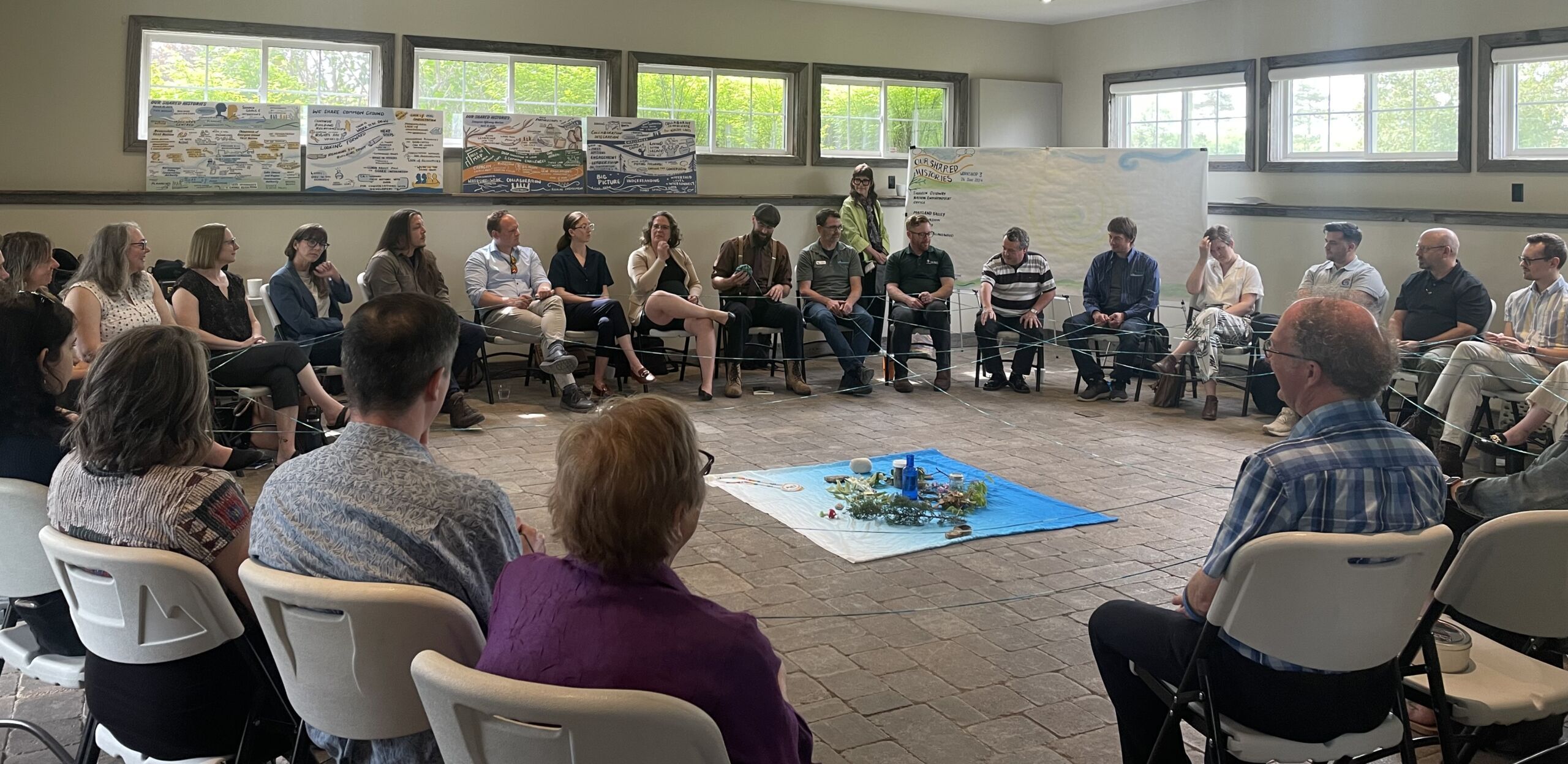Truth Before Reconciliation: The tragic discovery at Kamloops is a reminder that we are still uncovering the truth of Canada’s past
Written by Peters, Morgan •

The following blog post discusses the residential school system and may trigger upsetting feelings for some survivors and/or their families. Please contact the 24-hour Indian Residential Schools Crisis Line at 1-866-925-4419, or the Indian Residential School Survivors Society toll free line at 1-800-721-0066 if you require emotional support or assistance.
The recent revelation out of Kamloops of an undocumented burial ground containing the remains of children beside a former residential school has been another devastating reminder of the violence used over centuries to try to assimilate or completely eliminate Indigenous peoples from Turtle Island. Many residential school survivors and their communities, Tk’emlups te Secwepmc First Nation in particular, have felt old wounds open up and waves of sorrow flow through them. Our hearts go out to these survivors and their communities.
While this particular discovery is new, rumours about its existence have been floated since at least 2008. Additionally, the horrific nature of many residential schools has been remembered by Indigenous peoples for generations and officially acknowledged and recorded by the Federal government in the form of the Truth and Reconciliation Commission.
In his letter published in Today’s Northumberland, Chief Dave Mowat of Alderville First Nation—also a sitting Shared Path board member—states, “As the site of one of the early pre-Confederation ‘Indian Industrial Schools’ in Canada, Alderville First Nation knows all too well the extent to which the Colonies and later the Dominion would go to make our children ‘emphatically new creatures’ through church run/state sponsored assimilation programs.”
While many of the physical institutions have been demolished, the memory of the abuse doled out within their walls continues to affect survivors and their families, including the younger generations. The thread of history that connects us to residential schools is not broken and the reverberations of the state-sanctioned violence can still be felt. This is part of the truth we need to acknowledge before attempting reconciliation.
Chief Mowat continues:
“That our people and the Indigenous people across Canada survived to slowly and gradually use the same rule of law to show the world what this sad chapter in Canadian history entails is a testament to continued Indigenous strength and resilience.”
People across Turtle Island and beyond have expressed their support and sympathy for these survivors and their communities through symbolic gestures such as lowering flags to half mast and placing 215 pairs of childrens shoes at sites of former residential schools.
One of the reasons Shared Path exists is to assist communities from moving beyond these gestures to enact change. We at Shared Path are committed to challenging the oppressive systems of colonialism that have, and continue to, devastate Indigenous communities, beginning with the land use system.
Our organization does not intend to reinvent the wheel. Since the 1960s, multiple surveys, reports and commissions have been conducted and released to the public, both highlighting inequities experienced by Indigenous communities within Canada and providing recommendations as antidotes to some of those problems. Solutions have been identified time and time again – we as a society just need to act on them.
Shared Path takes its cues from one of the more recent reports which stems from the Truth and Reconciliation Commission. Completed in 2015, this series of documents contains testimonies collected from residential school survivors and their descendants across the country. It also contains 94 calls to action for governments, institutions, businesses and individuals. Upon review, we found three calls that strongly reflected our mission.
Royal Proclamation and Covenant of Reconciliation: Call to Action #47
We call upon federal, provincial, territorial, and municipal governments to repudiate concepts used to justify European sovereignty over Indigenous peoples and lands, such as the Doctrine of Discovery and terra nullius, and to reform those laws, government policies, and litigation strategies that continue to rely on such concepts.
Professional Training and Development for Public Servants: Call to Action #57
We call upon federal, provincial, territorial, and municipal governments to provide education to public servants on the history of Aboriginal peoples, including the history and legacy of residential schools, the United Nations Declaration on the Rights of Indigenous Peoples, Treaties and Aboriginal rights, Indigenous law, and Aboriginal–Crown relations. This will require skills-based training in intercultural competency, conflict resolution, human rights, and anti-racism.
Business and Reconciliation: Call to Action #92
We call upon the corporate sector in Canada to adopt the United Nations Declaration on the Rights of Indigenous Peoples as a reconciliation framework and to apply its principles, norms, and standards to corporate policy and core operational activities involving Indigenous peoples and their lands and resources. This would include, but not be limited to, the following:
I. Commit to meaningful consultation, building respectful relationships, and obtaining the free, prior, and informed consent of Indigenous peoples before proceeding with economic development projects.
III. Provide education for management and staff on the history of Aboriginal peoples, including the history and legacy of residential schools, the United Nations Declaration on the Rights of Indigenous Peoples, Treaties and Aboriginal rights, Indigenous law, and Aboriginal–Crow relations. This will require skills based training in intercultural competency, conflict resolution, human rights, and anti-racism.
A good first step for anyone feeling moved by the news out of Kamloops is to identify where you and your organizations fit into the TRC, and what power you may hold to make real, effective change. The 94 calls to action are available here.
Relationship building through shared understanding of history
When asked what non-Indigenous (settlers) can do to move beyond this damaging past, Indigenous peoples and communities often reiterate: new relationships need to be built based on respect and reciprocity.
Meaningful relationship-building requires non-Indigenous people to understand the history of the places they occupy and that they are all part of an ongoing narrative that connects to residential schools. Many of us are accustomed to thinking of history in terms of specific events, dates, and names, but that approach to the history of a place neglects the relationships that shaped the story and that connect the present to the past. The “truth” is not simply contained in facts, but in the stories told by Indigenous peoples and communities.
Take action by learning the story of the place you are, including the difficult parts of this story.
Resource from the Anishinabek Nation, An overview of the Indian Residential School System:
http://www.anishinabek.ca/wp-content/uploads/2016/07/An-Overview-of-the-IRS-System-Booklet.pdf
Interactive map of Canadian residential schools produced by CBC: https://www.cbc.ca/news2/interactives/beyond-94-residential-school-map/
Change.ca Petition: We Demand Ground Penetrating Radar at all Historic Indian Residential School



